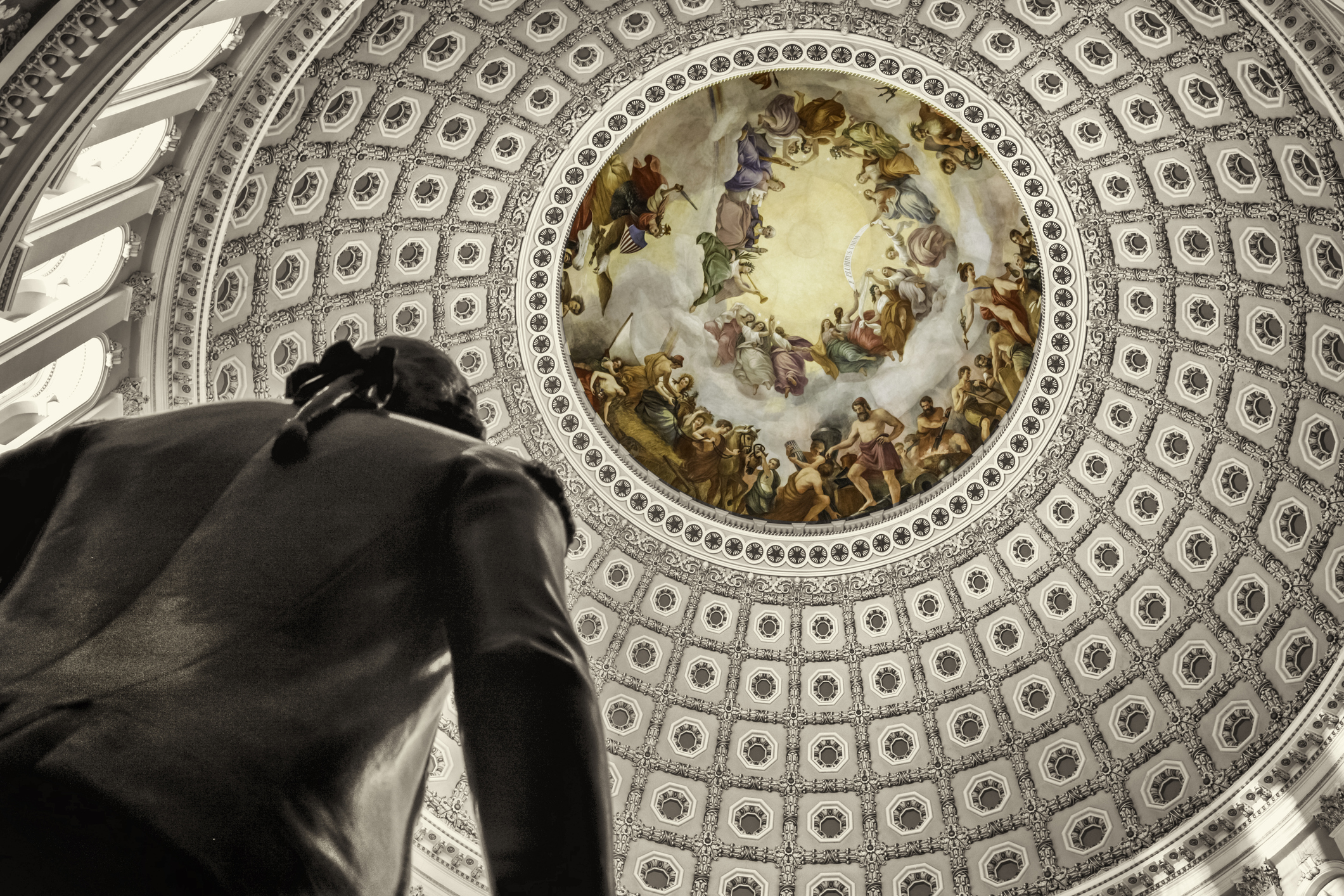
The law goes against the public interest, favoring lobbyists over public protections.
Americans are breathing a sigh of a relief now that the GOP’s favorite corporate payback scheme is over. On May 11, 2017, one of the most dreadful periods in congressional history came to a close, as the window elapsed for using the Congressional Review Act (CRA) to attack and reverse commonsense regulations from the end of President Barack Obama’s term.
The CRA’s “carryover period” was an unmitigated disaster for those who believe in Internet privacy, gun control, protecting the environment and clean water, women’s health, workplace safety, fair pay measures, and retirement security. But for the handful of big corporations that spent more than $1 billion lobbying to get their way, it was Congress’s finest moment.
It is time to repeal the CRA. U.S. Senators Cory Booker (D-N.J.) and Tom Udall (D-N.M.), along with U.S. Representative David Cicilline (D-R.I.), have introduced the Sunset the CRA and Restore American Protections Act of 2017 (SCRAP Act) to do just that. If passed, big business would never again be able to rely on the CRA to gut regulations that protect American workers, consumers, and families.
The CRA should be repealed for two reasons. First, far from its promise of making Congress accountable to the public, in practice the CRA simply made Congress even more beholden to corporate interests. This is because the CRA allows Congress to repeal recently issued public protections using expedited procedures that do away with hearings, committee votes, or having to overcome a filibuster in the U.S. Senate. This made the CRA the perfect vehicle for corporate lobbyists to cut backroom deals with Republicans in Congress to kill rules that were overwhelmingly popular with the public.
Draining the swamp this was not. Instead, the CRA empowered the “swamp monsters” to have Congress do their bidding out of the public eye.
President Donald Trump clearly recognized that signing many of these CRA resolutions would be unpopular with the public. Despite being famous for never shying away from a press camera, Trump insisted on signing several CRA resolutions behind closed doors without alerting the press—including resolutions allowing big telecommunications companies to sell the private data of Internet users, granting the severely mentally ill access to firearms, and making it easier for states to block funding for women’s health and family planning. In the end, Congress took just 100 days to wipe out 14 important protections that took federal agencies the equivalent of more than 30 years of resource-intensive analysis, public comment, and painstaking review to create.
Giving Congress a shortcut to kill public protections is itself arbitrary and unjustified. Rather than appearing out of thin air, as many conservatives would have the public believe, most regulations simply reflect the implementation phase of laws initially passed by Congress. Yet strangely, by getting rid of the filibuster, the CRA gives Congress the ability to repeal regulations with just 51 votes in the U.S. Senate, even though the Senate needed 60 votes to pass legislation authorizing those regulations in the first place. Once a regulation has been repealed under the CRA, Congress will potentially have to pass another law through regular order to bring the repealed regulation back to life, as the CRA prohibits agencies from acting on their own to adopt any future regulation that is substantially similar to the one Congress repealed. In other words, a regulation killed by 51 votes needs 60 votes to be recovered. There is simply no justification for this arbitrary and one-sided short cut.
The truth is that Congress does not need the CRA to repeal a regulation. Congress can roll back rules through the normal legislative process. When popular protections that save lives and protect working families and consumers are on the line, there is no reason to give opponents a shortcut to repealing them. That is the essence of rigged system.
The second reason to repeal the CRA is that it is so poorly drafted and vague that members of Congress cannot agree on how to interpret the plain language of the bill. For example, the CRA prohibits agencies from reissuing rules that are “substantially the same” as any rule overturned under the law, unless Congress passes a new law reauthorizing the rule. This draconian element of the CRA is one of the main reasons it should never have been used.
Yet everyone seems to have a different opinion of what “substantially the same” means. For example, when U.S. Senator John McCain (R-Ariz.) shocked Republicans by voting against a CRA resolution targeting methane waste regulations, he stated that it was because he feared this provision would have prevented the U.S. Department of the Interior from making improvements to the methane rule. On the other hand, U.S. Senator Rob Portman (R-Ohio) read the exact same language in the opposite way, arguing that the Interior Department would be able to produce another rule that restricts methane waste.
When different senators from the same party read the same legislation and come to opposite conclusions as to what it means, it is a clear sign that the law is poorly designed and needs to be scrapped. The SCRAP Act would clarify that agencies can reissue the rules that were previously overturned under the CRA.
If we need one final reason to get rid of the CRA, it is that some conservatives are proposing to take advantage of the CRA’s vagueness to expand significantly the list of potential targets for repeal. They have spawned a madcap legal theory that regulatory actions from many years ago could be overturned through the CRA’s expedited process if agencies did not submit their rules to Congress.
This flies in the face of clear congressional intent that the CRA would be used only to challenge recently issued rules. Indeed, the new theory rests on a dubious assumption: that the failure to comply with a minor paperwork requirement in the CRA is as crucial to the validity of a regulation as the years, even decades, of resource-intensive analysis, public comment, and reasoned justifications that went into developing the regulation in the first place. It is also a remarkable coincidence that we are hearing about this theory for the first time at the same moment that Republicans in Washington would be able to act on it. It is a cynical calculation that, now that the GOP controls both chambers of Congress and the presidency, the CRA should be stretched far beyond its original intent to exploit the favorable political circumstances and get rid of public protections that industry has wanted to cut for years.
The CRA was not a good idea to begin with, and the public is paying a steep price for its use. It is time to scrap the CRA.





